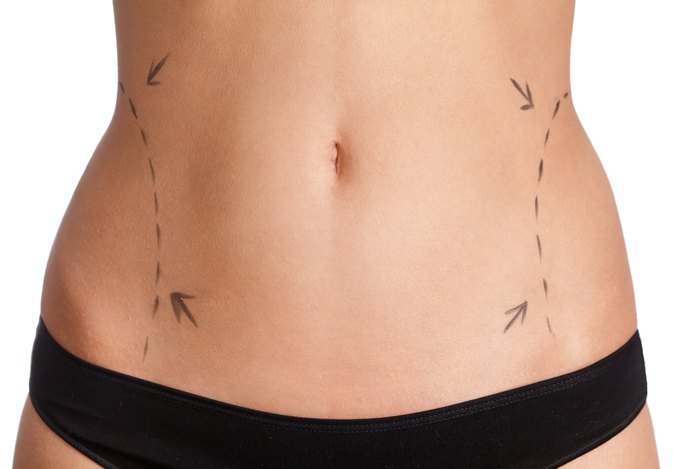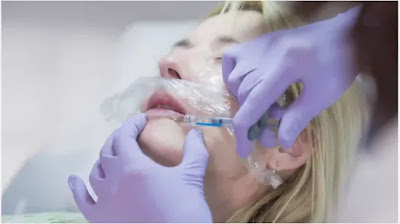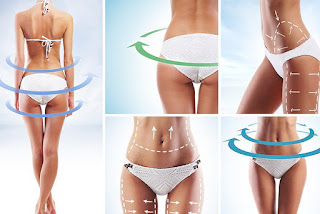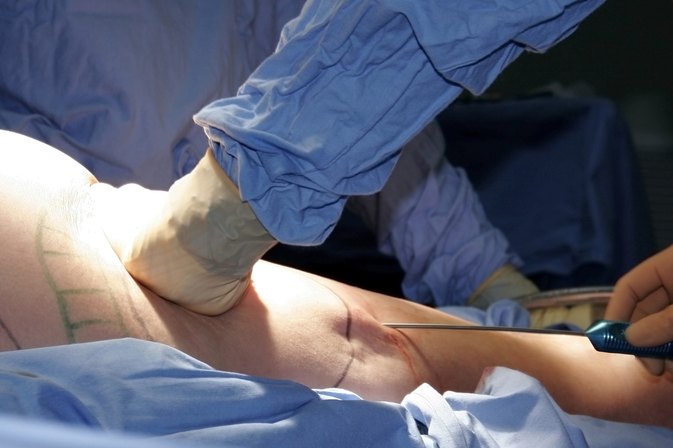Liposuction may be a kind of reconstructive surgery. It removes unwanted excess fat to boost body look and to swish irregular body shapes. The procedure is typically referred to as body contouring. Liposuction could also be helpful for contouring underneath the chin, neck, cheeks, upper arms, breasts, abdomen, buttocks, hips, thighs, knees, calves, and articulatio plana areas.
TYPES OF LIPOSUCTION PROCEDURES
Tumescent liposuction (fluid injection) is the most typical kind of liposuction. It involves injecting an oversized quantity of medicated answers into the areas before the fat is removed. The fluid may be a mixture of topical anesthetic, a drug that contracts the blood vessels), Super-wet technique is comparable to turgid liposuction. The distinction is that not the maximum amount of fluid is employed throughout the surgery. the quantity of fluid injected is adequate to the quantity of fat to be removed. this method takes less time. however, it usually needs sedation (medicine that creates you drowsy) or general anesthesia (medicine that enables you to be asleep and pain-free). Ultrasound-assisted liposuction (UAL) uses supersonic vibrations to show fat cells into liquid. Afterward, the cells will be vacuumed out. UAL will be worn out 2 ways in which, external (above the surface of the skin with a special emitter) or internal (below the surface of the skin with a little, heated cannula).
This method might take away fat from dense, fiber-filled (fibrous) areas of the body like the higher back or enlarged male breast tissue. UAL is usually used alongside the turgid technique, in follow-up (secondary) procedures, or for larger preciseness. In general, this procedure takes longer than the super-wet technique. Laser-assisted liposuction (LAL) uses optical device energy to liquefy fat cells. once the cells square measure liquefied, they'll be vacuumed out or allowed to empty out through tiny tubes. as a result of the tube (cannula) used throughout LAL is smaller than those employed in ancient liposuction, surgeons like victimization LAL for confined areas. These areas embody the chin, jowls, and face. A potential advantage of LAL over alternative liposuction strategies is that energy from the optical device stimulates albuminoid production. HOW THE PROCEDURE is completed
● A liposuction machine and special instruments referred to as cannulas square measure used for this surgery.
● The surgical team prepares the areas of your body that may be treated.
● You will receive either native or general anaesthesia.
● Through a little skin incision, a suction tube with a pointy finish is inserted into the fat pockets and swept wing through wherever fat is to be removed.
● The dislodged fat is vacuumed away through the suction tube. A air pump or an oversized syringe provides the suction action.
● Several skin punctures could also be required to treat massive areas. The physician might approach the areas to be treated from completely different directions to induce the simplest contour.
● After the fat is removed, tiny emptying tubes could also be inserted into the defatted areas to get rid of blood and fluid that collects throughout the primary few days once surgery.
● If you lose loads of fluid or blood throughout the surgery, you'll want fluid replacement (intravenously). In terribly rare, cases, a transfusion is required.
● A compression garment are going to be placed on you. Wear it as educated by your physician.
Liposuction isn't used:
● As a substitute for exercise and diet, or as a cure for general fleshiness. However it's going to be take away fat from isolated areas at completely different points in time.
● As a treatment for fat (the uneven, mark look of heal hips, thighs, and buttocks) or excess skin.
● In sure areas of the body, like the fat on the edges of the breasts, as a result of the breast may be a common website for cancer.
● Many alternatives to liposuction exist, as well as a reconstructive surgery (abdominoplasty), removal of fatty tumors (lipomas), breast reduction (reduction mammaplasty), or a mix of cosmetic surgery approaches. Your doctor will discuss these with you. Risks Certain medical conditions ought to be checked and be in restraint before liposuction, including:
● History of heart issues (heart attack)
● High vital sign
● Diabetes
● Allergic reactions to medicines
● Lung issues (shortness of breath, air pockets in bloodstream)
● Allergies (antibiotics, asthma, surgical prep)
● Smoking, alcohol, or drug use
Risks related to liposuction include:
● Shock (usually once not enough fluid is replaced throughout the surgery)
● Fluid overload (usually from the procedure)
● Infections (strep, staph)
● Bleeding, blood clot
● Tiny globules of fat within the blood that block blood flow to tissue (fat embolism)
● Nerve, skin, tissue, or organ injury or burns from the warmth or instruments employed in liposuction
● Uneven fat removal (asymmetry)
● Dents in your skin or contouring issues
● Drug reactions or dose from the topical anaesthetic employed in the procedure
● Scarring or irregular, asymmetric, or perhaps "baggy," skin, particularly in older individuals




















